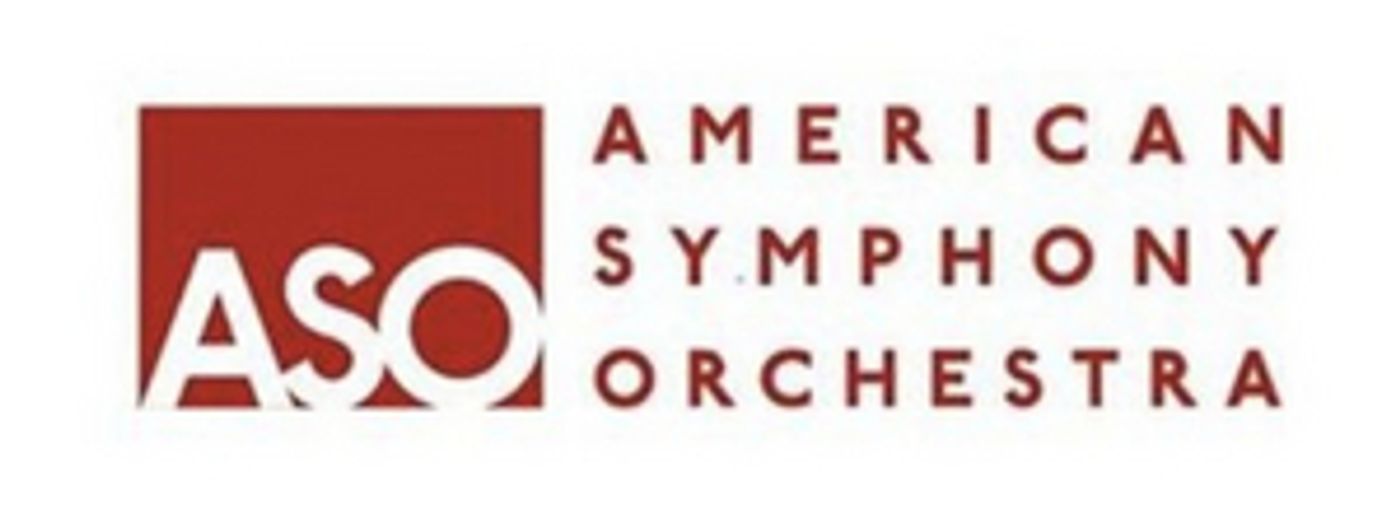American Symphony Orchestra Continues 2022-23 Season With Winter Concerts At St. Bartholomew's Church
Learn more about the upcoming performances here!

Following the American Symphony Orchestra's (ASO) immensely successful free opening concert at Bryant Park on Sept. 17, the Orchestra continues its 2022-23 season with two winter performances. On January 27, the ASO will offer a program at St. Bartholomew's Church-a New York National Historic Landmark-exploring music for organ and orchestra by Camille Saint-Saëns and Dame Ethel Smyth, and featuring soloist Paolo Bordignon, organist and choirmaster of the church and harpsichordist of the New York Philharmonic.
The next concert takes place at Carnegie Hall on March 23, presenting a rare performance of Richard Strauss' opera Daphne with soprano Jana McIntyre. Described by Opera News as gifted with a "dancer's grace, mercurial wit, and vibrant soprano tone", she was recently named a George London Foundation top prizewinner as well as a Metropolitan Opera National Council grand finalist. The performance includes the opera's seldom-heard Epilogue, an a cappella choral addition sung by the Bard Festival Chorale.
Organ + Orchestra
Friday, January 27 at 8 pm
St. Bartholomew's Church, 325 Park Avenue
American Symphony Orchestra
Leon Botstein, conductor
Paolo Bordignon, organ
Bard Festival Chorale
James Bagwell, choral director
Camille Saint-Saëns: Symphony No. 3 in C minor, Op. 78
Dame Ethel Smyth: Mass in D
The ASO joins St. Bartholomew's Church, a New York National Historic Landmark, to present a performance focusing on organ music. The Orchestra has a particular connection to St. Bart's in that its founder, Leopold Stokowski, began his New York City career as organist and choir director of the church, and played this organ, the largest in New York City. The program opens with Saint-Saëns' popular Symphony No. 3, dedicated to the memory of his friend Franz Liszt. Often referred to as the Organ Symphony, the work's loosely symphonic form includes an organ for two of its four movements, and the composer himself conducted the 1886 premiere in London. British composer and social activist Ethel Smyth was a prominent member of the women's suffragette movement. Although her work was marginalized due to her political stance on the women's vote as well as her gender, she was nonetheless the first female composer to be granted a damehood (1922) and her opera Der Wald, mounted in 1903, was for more than a century the only opera by a woman composer ever produced at the Metropolitan Opera. Smyth's only sacred work, her rarely-performed, six-part Mass in D, premiered at Royal Albert Hall in 1893, and is dedicated to her friend Lady Pauline Trevelyan. Of note is Smyth's request to place the Gloria movement at the end, rather than second as ordered in Catholic liturgy, so the work "would finish triumphantly."
Daphne
Opera in one act by Richard Strauss with libretto by Joseph Gregor
Thursday, March 23 at 8 pm
Carnegie Hall (Stern Auditorium/Perelman Stage)
American Symphony Orchestra
Leon Botstein, conductor
Bard Festival Chorale
James Bagwell, choral director
Jana McIntyre, soprano
Additional soloists to be announced at a later date
Richard Strauss: An den Baum Daphne (choral epilogue to Daphne)
Richard Strauss: Daphne "Bucolic Tragedy in One Act," Op. 82
The ASO spotlights Richard Strauss' seldom heard pastoral opera Daphne at this performance. With its lush orchestral palette, endlessly shifting harmonic motion, sumptuous melodies, combined with a diaphanous serenity typical of Strauss's later style, Daphne reveals a composer arguably at the peak of his powers, confident in his abilities as both composer and dramatist. In an even rarer presentation, the program also offers the opera's Epilogue, an a cappella choral addition written in 1943, a poignant illustration of the affection Strauss had for Daphne.
Videos

